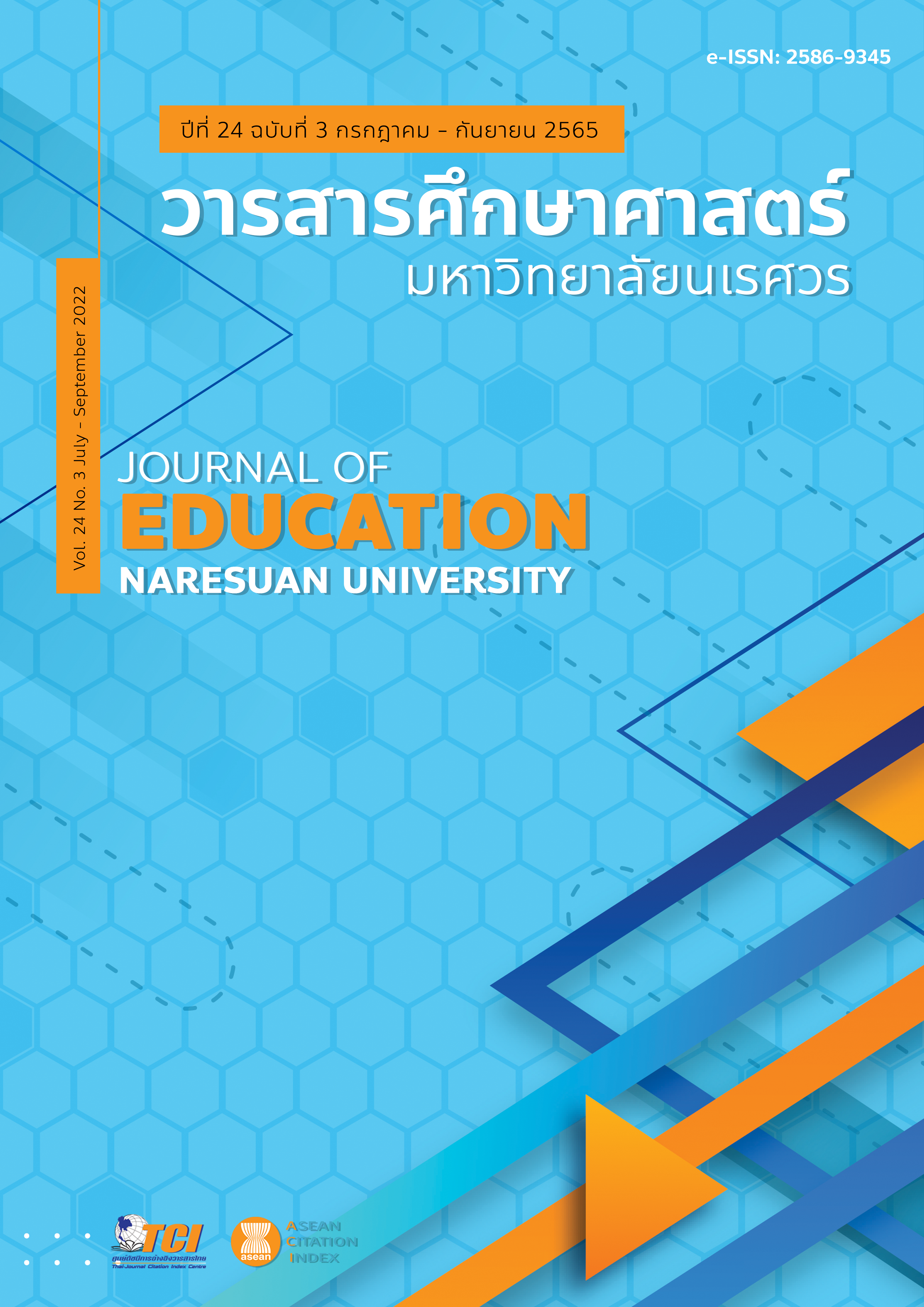A DEVELOPMENT OF INSTRUCTIONAL MODEL FOR ENHANCING PHYSICAL EDUCATION-BASED INNOVATIVE CREATIVITY IN THE THAILAND EDUCATION ERA 4.0 การพัฒนารูปแบบการเรียนการสอนเพื่อเสริมสร้างความคิดสร้างสรรค์เชิงนวัตกรรมทางพลศึกษาในยุคการศึกษาไทย 4.0
Main Article Content
Abstract
The purposes of this research were 1) to develop an instructional model for enhancing physical education-based innovative creativity in the Thailand Education Era 4.0, as well as 2) to investigate results on the implementation of an instructional model for enhancing physical education-based innovative creativity in the Thailand Education Era 4.0. For research methodology, 57 third-year physical education students at the Faculty of Education, Thailand National Sports University Lampang Campus were all selected by the cluster random sampling technique during the 2019 academic year. Research instruments drawn for this study included 1) A questionnaire related to the physical education student’s contexts and requirements; 2) An instructional model; 3) An aptitude physical education-based innovative creativity test; 4) A learning achievement test; and 5) a questionnaire related to physical education student’s satisfactions. The data were statistically analyzed using Mean, standard deviation, and t-test. The findings of the study were all detailed as follows: 1) in terms of the implementation of instructional model for enhancing physical education-based innovative creativity in the Thailand Education Era 4.0, it revealed that; 1.1) Instructional contexts supported for enhancing the students’ physical education-based innovative creativity were rated at a lower level; and 1.2) Meanwhile their required instructional management supported for the students’ physical education-based innovative creativity was rated at a higher level and 2) the development of instructional model for enhancing physical education-based innovative creativity was divided into 3 major steps of teaching process consist of 9 components which are CREATIVES MODEL, was rated at a higher level, Also, 2.1) In terms of the implementation of a development of instructional model for enhancing physical education-based innovative creativity, it showed that the students’ were rated at 80.08 %, 2.2) meanwhile their learning achievements on the course with its significantly difference of 0.05, were higher than pre-implementation, and 2.3) Their satisfactions toward the implementation of instructional model for the enhancement of physical education-based innovative creativity were at high level.
Article Details

This work is licensed under a Creative Commons Attribution-NonCommercial-NoDerivatives 4.0 International License.
The owner of the article does not copy or violate any of its copyright. If any copyright infringement occurs or prosecution, in any case, the Editorial Board is not involved in all the rights to the owner of the article to be performed.
References
Buasri, T. (1999). Curriculum theory, curriculum design and Development (2nd ed.). Bangkok: Pattanasuksa. [in Thai]
Chivaphan, C. (2010). Teaching language, interesting stories for Thai teachers (7th ed.). Bangkok: Chulalongkorn University Press. [in Thai]
Deelers, S., Tantasanawong, P., & Aujirapongpan, S. (2017). Creative thinking of undergraduates in the higher education institute with creative identity. WMS Journal of Management, Walailak University, 6(1), 16–25. [in Thai]
Guilford, J. P. (1967). The nature of human intelligence. McGraw-Hill: Book Company.
Hurlock, E. B. (1972). Child Development (5th ed.). New York: McGraw-Hill.
Joyce, B., & Weil, M. (2009). Model of teaching (5th ed.). Englewood Cliff, NJ: Prentice-Hall.
Khuana, K., Khuana, T., & Khieodi, L. (2019). A model of instructional management to enhance education students’ educational productive creativity in the Faculty of Education, Kamphaengpet Rajabhat University into Thailand Education 4.0. National Academic Conference on Education 5th: NACE 2019 “Research for Sustainable Wellbeing and Smart Society” (pp. 49-66). Lampang: Lampang Rajabhat University. [in Thai]
Kwangmuang, P. (2018). The result of using constructivist learning innovation to enhance knowledge construction and creative thinking in 21st century learning for undergraduate student. Panyapiwat Journal, 10(1), 175-184. [in Thai]
Phongsaksri, J., Teeraputon, D., & Natakuatoong, O. (2018). Development of collaborative learning model on internet based instruction using mind map to develop creative thinking of undergraduate student industrial design programme. Journal of Education Naresuan University, 21(2), 54-63. [in Thai]
Sutthirat, C. (2011). Authentic learning. Nonthaburi: Sahamit Printing and Publishing. [in Thai]
Tanner, D., & Tanner, L. (1995). Curriculum development: Theory into practice (3rd ed.). New Jersey: Prentice-Hall.
Thotta, O., Jaiodthon, J. & Jaiodthon, S. (2017). The application of the theory of structural cognitive development cognitive abilities that promote creative thinking techniques, creative problem solving and brainstorming associated. The 4th National Conference of NMC 2017 (4th NMCCON 2017) “Propel the Economy Through Research and Innovation: The future and new challenge of Thailand 4.0” (pp. 117-128). Nakhon Ratchasima: Nakhon Ratchasima College. [in Thai]
Tylor, R. W. (1970). Basic principal of curriculum and instruction. Chicago: University of Chicago Press.
Weiss, D. S., & Legrand, C. (2011). Innovative intelligence: The art and practice of leading sustainable innovation in your organization. New York: John Wiley & Sons.
Wescott, A. M., & Smith, J. A. (1967). Creative teaching of mathematics in the elementary school. Boston: Allyn and Bacon.
Wisetsat, C., & Nưangchalœm, P. (2018). Learning management guideline to enhance innovative thinking skills of pre-service teachers. Buabandit Journal of Educational Administration (Buajead), Ubon Ratchathani Rajabhat University, 18(4), 129-141. [in Thai]
Wiwattananon, S. (2007). Reading, critical thinking and writing skills. Nonthaburi: C.C. Knowledge Links. [in Thai]
Worakham, P. (2011). Educational research. Kalasin: Prasarnkarnpim. [in Thai]


